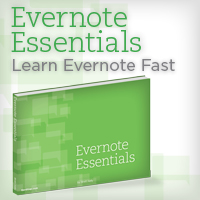Fiddling, in productivity dork parlance, normally describes when people dink around excessively with their tools instead of doing actual work. Things like the incessant reorganizing of lists, evaluating new ways to track tasks and projects and spending untold hours trying out new pens, notebooks and other crap like that. So, yeah — fiddling.
In my opinion, we need to expand the working definition of this word as it relates to work because, as the Internet has shown us, a great many things that appear worthwhile from a distance are actually stopping smart people from doing what they need and/or want to do.
Learning
I realize that citing learning as a bad thing is tantamount to kicking a cute little puppy, but just hear me out. I own many, many ebooks about various topics, not the least of which is how to effectively sell crap on the Internet (nothing sleazy, for the record, but I do sell something on the Internet and want to do it well). I’ve read many of them and have put a few tidbits I’ve picked up into practice, but the yield from reading things like this isn’t commensurate with the amount of time I’ve spent with the material. Fiddling.
It’s fine to want to learn how to do something, it really is. But, if you’re reading books about how to increase your Web site’s conversion rates before the actual Web site exists, you’re doing it wrong. If you want to learn how to write software for your mobile phone, read a bit so you know how to get started, but don’t devour a 500 page book before you install the tools required to do the work.
The thing is, learning feels like a very responsible way to spend ones time — and it is, in many cases. But, not always. Ensuring that the learning you’re doing is actually helping you do is the trick.
Simplifying
This is going to sound kinda “me too” after listening to the most recent episode of Back to Work, but I’ve actually been kicking this idea around for awhile.
Simplifying ones life/tools/garden/thing is an incredibly popular pastime these days. I won’t dig into why I disagree with much of this movement (which I do, believe me), but I do want to point out that perpetually trying to pare down the list of tools you use can be a serious barrier to getting actual work done or actually making actual things.
I’m all for omitting needless nouns and processes, but, as Merlin so eloquently put it, this type of thing flirts dangerously with becoming a “meta-distraction”. If the complexity of the thing you use to accomplish X is precluding you from accomplishing X, then, sure, find something simpler — just do it quickly and decisively and get back to moving the cursor to the right.
(Over-)Thinking
“What are you, some kind of know-it-all prick?”, you may find yourself saying. Well, maybe. But the number of times I’ve “taken time to think [it] over” far outnumber the times when that sort of business was called for.
Over-thinking is what breeds unfounded doubt. There’s a reason “go with your gut” is such a timeless refrain among those most accomplished — more often than not, we know what we need/want to do, but we waffle because of some combination of uncertainty and fear and, just maybe, procrastination. I’m not judging anybody on this one—believe me—as I struggle with this one more than all the rest combined. What I’ve learned, though, is that I learn by doing, and often failing, not by stroking my chin.
Always think, but resist the urge to think about it more than is required. Make a decision and execute on it. If the decision turns out to be the wrong one, then your gut now has a little more context for next time.
Actually Fiddling in the Traditional Productivity Wonk Sense of the Word
There was a time when I would frequently take several hours to move my huge ass list of tasks from one app to another app to a paper thing and back to the first app again. The grass looked greener and I wasn’t particularly excited about much of what I was spending my time doing, so I decided that the implement was the problem, not my own stupid brain. As you can probably guess, that was incorrect.
These days, I’ve been using the same tools for quite some time and they work. If I ever feel like they aren’t working, I don’t immediately wag a sleepy finger at the software that houses my task list. No, I (finally) realized that it doesn’t matter what the thing is, but how you approach it. I’ll always find little niggles with whatever hammer I happen to be holding, but that’s no excuse for just taking the week off to go hammer shopping when there are nails to be driven.
In Summation
I really don’t mean to sound like a preachy a-hole here, but so much of what the modern builder would call “noble pursuits” are just excuses and bullshit introspection that lead to a brain full of immaterial fluff, a desk free of almost everything, a pristine instance of [your favorite task manager] and a few more gray hairs than you would have otherwise gone to sleep with that night. What they often don’t lead to is a thing that’s finished.
Building things is fun. Building things is a huge reason why we exist.
So, learn the algorithm. Find a replacement for the dull blade. Make your list. Come to a conclusion. Solve the problem.
Then, get back to building something cool.

